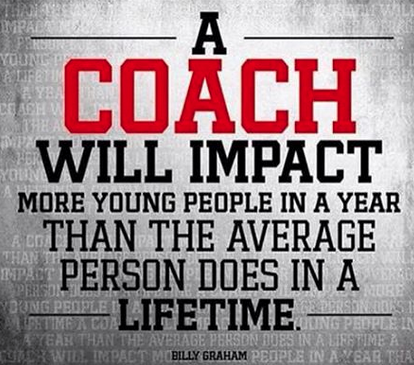What Recruiting Coaches Focus On

The Benefits of Being a Student Athlete Go Beyond Being in the Starting Lineup
February 7, 2017
What Are Your Photo’s Saying About You as an Athlete?
February 22, 2017It’s every student athlete’s dream to someday play sports at the collegiate level. That one day all those endless practices, tiring scrimmages, banged up knees, sore joints and exhausting games might translate into a chance to play for a University. But what are coaches focusing on? What makes an athlete stand out from the rest of the bunch?
Players and parents often have no idea what college recruiters are looking for, so they end up focusing their efforts on the wrong things. Recruiting, as some may already be aware of, can be a difficult and oftentimes frustrating process. To help ease you through the process, here are a list of things to redirect your focus and energy.
Taking Charge & Academics
Recruiting starts once a student-athlete enters high school and in some extreme cases, even before that. Because recruiting starts at such a young age, so should taking on the responsibility of setting yourself up for success. Start early and establish a timeline. Your senior year in high school is too late to begin gathering information on prospective schools or to contact college coaches.
Are you taking the right classes? Are you eligible to play at the college level? Have you registered with the NCAA? Have you done your research? Are you doing your part and reaching out to coaches?
Don’t sit and wait for the phone to ring or a coach to show up to a game. Be proactive. Reach out to schools you are interested in. Don’t rely on high school coaches or your parents to do the work for you. Pick up the phone and call that college coach directly. Having your parents write emails for you isn’t fooling anyone. Coaches can tell the difference. One of the strongest ways to differentiate yourself is by calling the coach yourself.
Parents should be there to help you through the process, but should not do most of the work. It is far more beneficial for the recruiting staff to speak to you personally. Remember, coaches, are recruiting you, not your parents.
Exposure & Video
Exposure is key. Attend as many events as possible: tournaments, showcases, camps, clinics and more. Find out if the coaches you want to perform for are going to be, and let them know that you will be attending. Quite often, however, a coach that you don’t know will discover you and then reach out to you. That’s why maximum exposure is important. And on top of all of that, have a basic video and a profile or website available online.
Level of Play
There are 4 main assets coaches look for when recruiting: skill level, toughness, motor, and IQ. Do you have a feel for the game? Are you making the right plays? Can you perform the tasks expected of your position well? Are you mentally tough? How do you react when things don’t go well? What is your body language telling them? What kind of teammate are you?
Athletes that show they hate losing but not in a way that distracts from the team is crucial. Coaches want to see that you are passionate about your sport, regardless if your winning or losing. You might be the best on your team but are you strong enough, smart enough, tough enough, and skilled enough to compete in that position against bigger and stronger opponents?
Get ahead of the game and get involved in a strength, speed, and conditioning program during your freshman year in high school. Find someone who is knowledgeable in working with athletes. Most athletes are shocked at how much strength training they do when they get to college.
Leadership
No matter how rough or great a game you’re having, setting yourself apart as a student-athlete who deserves to become part of a college team means that you’re always respectful, attentive, and cheering on your teammates. Your best bet is to play and act as if a recruiting coach is always watching. When you’re in the huddle, be in the huddle. Listen to your coach. Be there with your teammates and focus. Be the leader on the court/field that takes charge when you’re up and especially when you’re down. Your actions speak volumes.
Personality & Social Media
When college coaches are looking at a student athlete’s potential, they’re not just thinking about their potential athleticism. They’re looking at the potential attitude that will be impacting their team. That being said, be mindful of what you do away from the field, track or court. College coaches are watching everything. They watch the way you warm up, how you interact with coaches and teammates on the sideline, how you act and treat your parents away from the field. They also monitor your social media — Facebook, Twitter, Instagram, you name it. If all your social media accounts are locked, then a coach may wonder what you are hiding. So, keep them public, and keep them clean. Build a positive social media presence.


